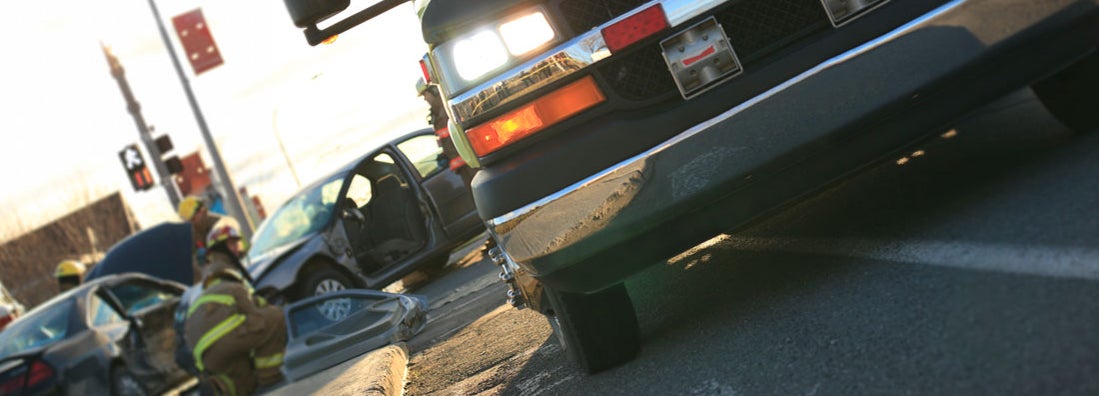Medical Payments Coverage
Find out why medical payments coverage is an important addition to your car insurance.

Paul Martin is the Director of Education and Development for Myron Steves, one of the largest, most respected insurance wholesalers in the southern U.S.

You know that your car insurance offers a lot of important protection for you on and off the road. But you might not be equipped with all the coverages you need to fully protect yourself and your passengers. If you're lacking medical payments coverage, it might be time to consider adding it to your policy.
Fortunately, an independent insurance agent can help you get set up with all the types of car insurance you need to be fully protected. They'll get you set up with the coverage you need before you ever have to file a claim. For starters, here's a breakdown of medical payments coverage under auto insurance.
What Is Medical Payments Coverage?
Medical payments coverage is a part of car insurance that reimburses a policyholder for their own injuries and/or injuries to their passengers after an accident. This coverage is especially important if the policyholder is the one who caused the accident. An independent insurance agent can help you double-check your car insurance to see if you're equipped with medical payments coverage.
Is Medical Payments Coverage Different Than Personal Injury Protection?
Though the terms are often used interchangeably, there is a slight difference between medical payments coverage and personal injury protection (PIP). Medical payments coverage reimburses for medical costs for the driver's injuries as well as their passengers' injuries up to a certain limit. But PIP coverage can also reimburse for lost wages if an injured passenger has to miss work while recovering.
What Else Does Car Insurance Cover?
Car insurance can vary widely depending on the type of coverage you select. Most states require at least liability coverage as the bare minimum. Here are a handful of the most common core coverages in standard car insurance policies:
- Collision: Covers you if you get into a collision with another driver's vehicle or a piece of property like a fence.
- Comprehensive: Covers risks other than collision, such as vandalism, theft, storm damage, accidents with large animals, or windshield breakage.
- Liability: Bodily injury liability covers you in case you cause injury to someone with your vehicle, while property damage liability covers you if you damage someone else's personal property with your vehicle.
- Uninsured/Underinsured motorist: Covers you if you get into an accident with another driver who does not have any or enough car insurance of their own to cover their share of the costs.
An independent insurance agent can help you find all the types of car insurance you need to be fully protected when behind the wheel, as well as when your car's parked in the carport.
Do I Need Medical Payments Coverage with My Car Insurance Policy?
Currently, medical payments coverage is only required by law in three states:
- New Hampshire
- Pennsylvania
- Maine
It's a good idea to consider adding the coverage to your car insurance policy, since bodily injury liability only reimburses for injuries to the other driver and their passengers if you cause an accident. Without medical payments coverage, you could end up having to pay out of pocket for any injuries or medical treatments required by yourself or those who were in your car.
Which Type of Liability Limit Applies to Medical Payments Coverage?
Well, the liability section of your car insurance is different from your medical payments coverage. While your bodily injury liability or property damage liability might come with limits between $100,000 to $500,000, the medical payments section of your coverage is designed for much lower costs. Often medical payments coverage has a limit somewhere between $1,000 to $5,000.
Where Can I Get Car Insurance with Medical Payments Coverage?
Car insurance with medical payments coverage is available from many major insurance carriers across the US. Finding coverage can depend on the area where you live, though. To get started, here are just a few of our top picks for the best car insurance with medical payments coverage.
| Top-rated car insurance company | Star rating |
| Progressive |

|
| Travelers |

|
| Central Insurance Companies |

|
| The Hanover |

|
| Encova |

|
| Nationwide |

|
| Safeco |

|
Why Choose an Independent Insurance Agent?
Independent insurance agents simplify the process by shopping and comparing insurance quotes for you. Not only that, but they’ll also cut the jargon and clarify the fine print, so you know exactly what you’re getting.
Independent insurance agents also have access to multiple insurance companies, ultimately finding you the best car insurance and medical payments coverage, accessibility, and competitive pricing while working for you.
iii.org/article/auto-insurance-basics-understanding-your-coverage
ashmorelaw.com/faqs/what-is-the-difference-between-med-pay-and-pip.cfm
